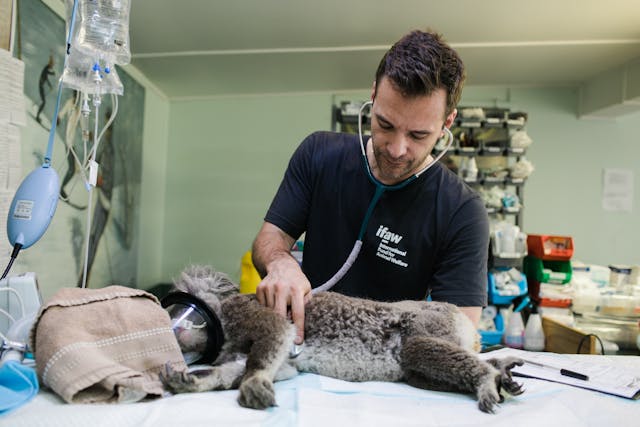As devoted pet owners, we understand the importance of ensuring our furry friends live happy, healthy lives. But even the most attentive owners can sometimes overlook subtle signs that their dog might be unwell. Dogs can’t communicate discomfort or illness the way humans do, so recognising the common signs of illness in dogs and knowing when to consult a vet is essential for their wellbeing.
Here are Some Key Signs Your Dog Might Be Unwell
- Changes in Appetite or Weight: A sudden loss of appetite or a dramatic weight change can indicate underlying health problems. While occasional pickiness might not be a concern, persistent disinterest in food could signal issues like gastrointestinal upset, dental problems, or even more severe conditions such as organ disease.
- Unusual Behaviour or Lethargy: Dogs are typically playful and energetic, so a sudden shift to lethargy, disinterest in activities, or uncharacteristic aggression can be a red flag. These behavioural changes might indicate pain, stress, or underlying illness.
- Vomiting or Diarrhoea: Occasional vomiting or diarrhoea is not uncommon in dogs, especially if they’ve eaten something they shouldn’t have. However, frequent or prolonged episodes, particularly when accompanied by other symptoms like dehydration or blood in the stool, require immediate veterinary attention.

- Coughing or Difficulty Breathing: Persistent coughing, wheezing, or laboured breathing can indicate respiratory infections, heart conditions, or other serious health issues. These symptoms should never be ignored, as timely intervention could be critical.
- Skin Irritations or Hair Loss: Red, itchy, or flaky skin and unexplained hair loss are common signs of allergies, infections, or parasitic infestations. If scratching is excessive or sores develop, consult a vet promptly to identify the root cause.
- Eye Discharge or Irritation: Healthy dog eyes should be clear and bright. If you notice redness, cloudiness, or discharge, it could be a sign of an eye infection or other condition. In such cases, cleaning a dog’s eye infection as part of a care routine is crucial, but professional advice may also be necessary.
- Frequent Urination or Difficulty Urinating: Changes in your dog’s urination habits, such as increased frequency, accidents in the house, or visible discomfort, may indicate urinary tract infections, bladder stones, or kidney issues. Always seek prompt veterinary advice if you notice these signs.
- Persistent Bad Breath: While some degree of “doggy breath” is normal, unusually strong or foul-smelling breath can be a symptom of dental disease, metabolic issues, or gastrointestinal problems. Maintaining oral hygiene and regular dental check-ups are essential.

When to See a Vet
Not all signs of illness in dogs warrant an emergency visit, but certain symptoms should be addressed without delay:
- Difficulty breathing or choking
- Seizures or severe disorientation
- Persistent vomiting or diarrhoea lasting over 24 hours
- Ingestion of toxic substances
- Severe pain, limping, or refusal to move
- Swelling, lumps, or unexplained wounds
When in doubt, it’s better to err on the side of caution. Regular veterinary check-ups and a proactive approach to your dog’s health can make all the difference in detecting and managing potential health concerns early.
Final Thoughts
As much as we’d love our dogs to always be vibrant and healthy, illnesses can occur. By familiarising yourself with the common signs of illness and taking swift action when something seems amiss, you can help your furry companion live a long, healthy, and happy life. Remember, a trusted vet is your best partner in ensuring your dog’s wellbeing, so never hesitate to reach out if you’re concerned.





